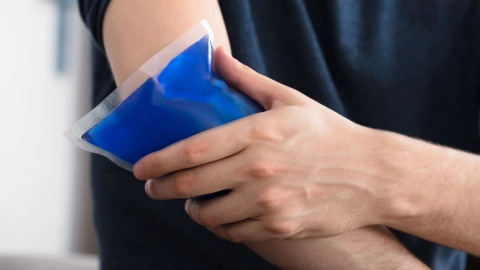ICD-Code M77.1: Lateral epicondylitis
You have a tendon disorder in your elbow area.
Tendons are made up of very firm connective tissue. Tendons attach muscles to bones.
At its lower end, the humerus has 2 bony projections. If you turn the palms of your hands forwards, one bony projection points towards the body. This is the medial epicondyle. The other bony projection then points away from the body. This is the lateral epicondyle. Tendons from muscles that, for example, extend the wrist are anchored to the lateral epicondyle. You have a disorder in tendons attached to the lateral epicondyle. When there is a disorder of the tendons attached to the lateral epicondyle, this is also known as tennis elbow.
When the muscles in the forearm are subjected to too much strain, the tendons can become inflamed or damaged in some other way. This can occur due to work or sports, for example.
When there is a disorder in the tendons, your elbow may be painful. The pain can increase if muscles in the hand or forearm are moved. Your forearm or hand may also be weaker than usual.
Additional indicator
On medical documents, the ICD code is often appended by letters that indicate the diagnostic certainty or the affected side of the body.
- G: Confirmed diagnosis
- V: Tentative diagnosis
- Z: Condition after
- A: Excluded diagnosis
- L: Left
- R: Right
- B: Both sides
Further information
Source
Provided by the non-profit organization “Was hab’ ich?” gemeinnützige GmbH on behalf of the Federal Ministry of Health (BMG).



